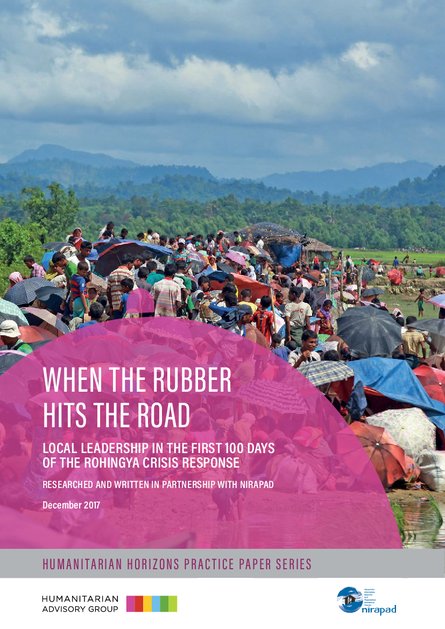
The international community has committed to a humanitarian system that is locally owned and led. This means a shift of power, resources and decision-making to local and national responders in humanitarian action. But how is this manifested during a humanitarian response of the scale and complexity of the Rohingya refugee crisis in Bangladesh? This rapid real-time analysis considers how the global localisation agenda has influenced the current operational response, and prompts questions about what happens when localisation moves from theory to practice.
Note: This evaluation report is also available in Bangla.